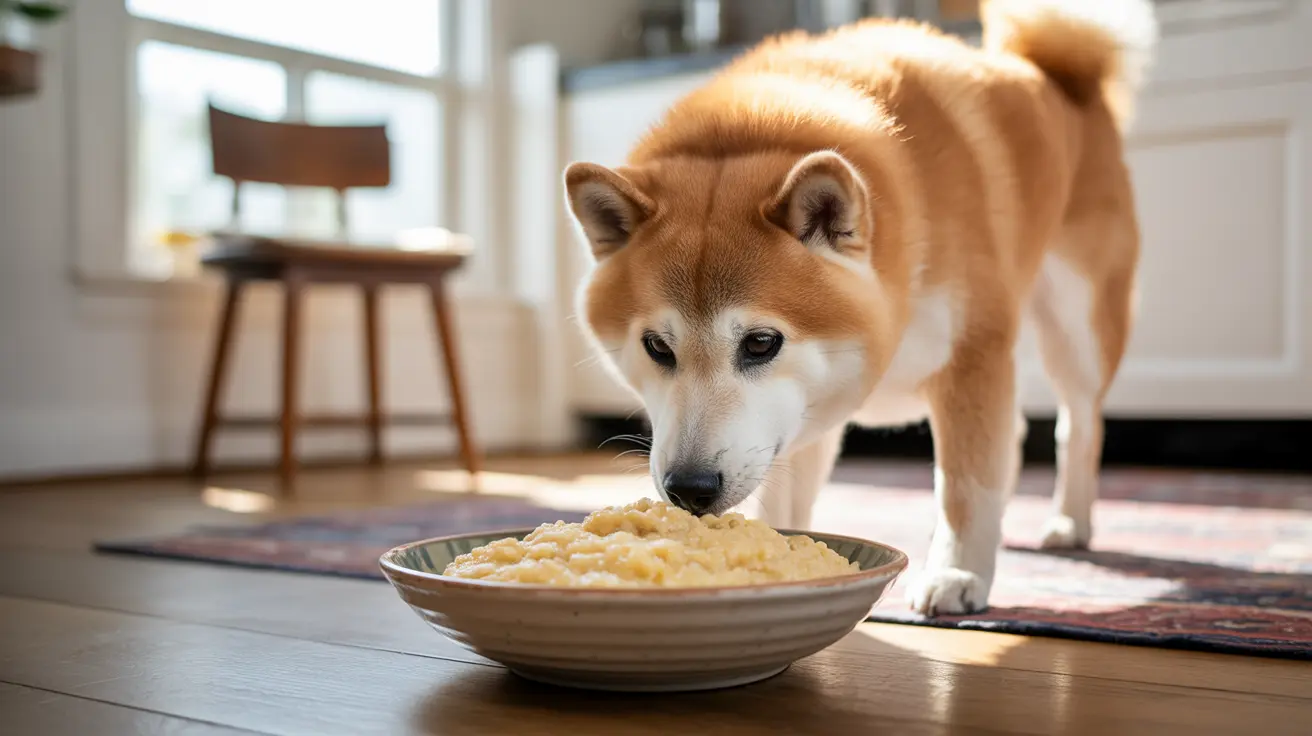Understanding Grits and Their Impact on Dogs
Grits are a traditional Southern dish made from ground corn (hominy) that's boiled until it reaches a porridge-like consistency. While not toxic to dogs, grits offer minimal nutritional benefits and should be viewed as an occasional treat rather than a dietary staple.
Nutritional Content of Grits
- Carbohydrates
- Small amounts of protein
- Minimal fiber
- Some B vitamins (particularly in stone-ground varieties)
- Trace minerals like iron and calcium
Safety Guidelines for Feeding Grits to Dogs
When considering grits for your dog, following proper safety guidelines is crucial:
Do's:
- Serve plain, fully cooked grits
- Offer small portions (maximum one tablespoon for medium-sized dogs)
- Allow grits to cool completely before serving
- Monitor your dog for any adverse reactions
Don'ts:
- Never add butter, cheese, salt, or seasonings
- Avoid serving instant or quick-cooking varieties
- Don't make grits a regular part of your dog's diet
- Never substitute grits for balanced dog food
Potential Health Risks and Concerns
While plain grits aren't toxic, several health concerns warrant attention:
Digestive Issues
- Gastrointestinal upset
- Constipation
- Diarrhea
- Bloating
Weight Management
- Weight gain
- Obesity
- Related health issues
When to Avoid Feeding Grits
Certain dogs should not consume grits, including those with:
- Corn allergies
- Grain sensitivities
- Digestive disorders
- Weight management issues
- Diabetes or blood sugar concerns
Proper Serving Methods
If you choose to offer grits to your dog, follow these guidelines:
- Cook thoroughly in plain water
- Serve at room temperature
- Start with tiny amounts to test tolerance
- Limit to occasional treats only
- Mix with regular dog food if desired
Frequently Asked Questions
Can dogs safely eat plain, cooked grits and in what quantities?
Yes, dogs can safely eat plain, cooked grits in small quantities. Limit portions to one tablespoon or less for medium-sized dogs, and serve only occasionally as a treat.
What are the health risks of feeding dogs grits with added butter, salt, or cheese?
Added fats, salt, and dairy products can cause digestive upset, pancreatitis, and unnecessary weight gain. These additives may also lead to dehydration or more serious health complications.
Can grits cause allergies or digestive issues in dogs, and which dogs should avoid them?
Yes, some dogs may be allergic to corn or experience digestive issues. Dogs with grain sensitivities, corn allergies, or existing digestive problems should avoid grits entirely.
How should I prepare and serve grits to my dog to ensure safety?
Cook grits thoroughly in plain water, allow them to cool completely, and serve without any seasonings or additives. Always start with small amounts to monitor your dog's reaction.
Are grits nutritionally beneficial for dogs, or should they be strictly an occasional treat?
Grits offer minimal nutritional benefits for dogs and should be considered strictly as an occasional treat. They should never replace any portion of a dog's balanced, regular diet.
Conclusion
While dogs can safely consume plain grits in moderation, they offer little nutritional value and should be treated as an occasional snack rather than a dietary staple. Always prioritize your dog's regular, balanced diet and consult with your veterinarian before introducing any new foods, including grits, into their meal plan.






